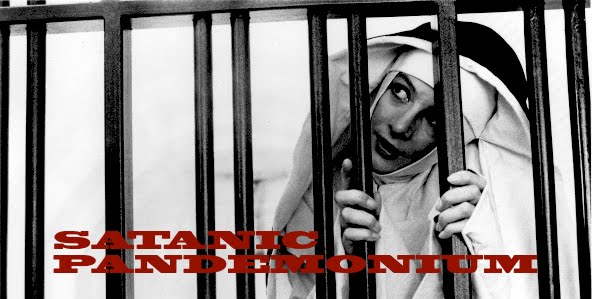Vincent Sherman, 1947
Starring: Ann Sheridan, Kent Smith, Robert
Alda
Dr. Richard Talbot has an accidental run
in with night club singer Nora Prentiss. She is hit by a car on the street in
front of his office, so he treats her minor bumps and bruises. Talbot has been
feeling constricted by his nagging wife and the precise, ironclad routine of
his life. He and Nora clumsily begin an affair and his life changes almost overnight
– he becomes selfish, neglectful, and constantly tardy. Unable to leave Nora
and unable to ask his wife for a divorce, Talbot fakes his own death when a
patient happens to die in his care one evening. He flees east to New York and
begins a new life with Nora. Unfortunately, he becomes consumed with paranoia,
convinced the police are a step behind him and they will never have any peace…
Nora Prentiss is an odd entry into
the female-centric noir films of the mid to late ‘40s. It seems like it should
be far more melodrama than it is and contains a number of interesting twists. The
plot has a number of holes, but is pleasantly complex. Though the advertising
suggests otherwise, the titular Nora Prentiss is not a femme fatale – she’s not
even the protagonist, actually – she’s just a good-hearted nightclub singer
looking for someone to love her. She does not actively contribute to Richard’s
destruction – that is all of his own doing. She accepts that he must leave her
for his wife and family and even leaves town to remove the temptation. It is
Richard’s own insane idea to fake his own death and flee with her to New York;
bizarrely, he doesn’t tell her about this until weeks into their trip when he
begins to feel jealous or paranoid. She doesn’t leave him or cheat – though she
has the opportunity to do both – and she sticks with him until the bitter end.
Actually, most of the film’s characters turn out to be
different than they are initially presented and almost opposite than they would
be in a more formulaic, conventional film noir. Robert Alda (The Man I Love) puts in a surprising turn as a
nightclub owner with genuine feelings for Nora, while the sinister-looking
Bruce Bennett (Dark Passage) is
wildly miscast as a doctor. Seriously, the man constantly looks like he is
either in the midst of plotting or executing a crime. The dependable John Ridgely (The Big Sleep) has a small role here as an unfortunate medical
patient and looks extra handsome. Rosemary DeCamp (Yankee Doodle Dandy) is also well-cast as Richard’s understanding,
well-meaning, and yet nagging wife. She could have easily turned into a shrew,
such as the wife from Humphrey Bogart film Conflict
(1945), which would have justified Richard’s increasing need to break free of
his dull, confining life. Fortunately, the script does not make things that
easy for him.
I
don’t have a lot to say about star Kent Smith (Cat People). He was perfectly cast, but the dependable
suburban-dad-gone-wrong is just not a character-type I enjoy or find
interesting. He essentially plays the same character in the superior Cat People and Curse of the Cat People alongside Jane Randolph, whose
all-American, world-wise yet goody-two-shoes sensibility is so similar to Ann
Sheridan. Speaking of Sheridan, she seems almost
miscast here, despite a solid performance. If you want to see her in an early
noir, she’s absolutely adorable in They
Drive By Night. Probably her biggest role was in I Was a Male War Bride, where she costarred with Cary Grant. It’s
just difficult to believe that such a repressed, straight-laced character –
Richard – would leave his regimented life of domestic bliss for someone as nice
and as dependable as Nora. While this element certainly sets the film apart, it
feels unbelievable.
Though it has its share of slow moments,
there is plenty of doom, gloom, and frustration in Nora Prentiss to keep this moving towards its inevitable, if
somewhat ridiculous conclusion, which I won’t spoil here. There’s some solid
direction from Vincent Sherman (The
Unfaithful, The Damned Don’t Cry, The Letter), who helmed his fair share of
female-centric melodramas and films noir. James Wong Howe provides some
excellent cinematography; the series of shots that open and close the film are
absolutely mesmerizing and I spent much of the second act wishing for more of
these. His expert use of expressionist shadows and angles elevates this to far
more than the mediocre affair that it otherwise would – or should – have been. One
of the film’s concluding shots is particularly breathtaking – Nora and Richard
speak to each other through the mesh window of a jail’s visiting room. On one
hand, it looks very much like a screen in a church confessional booth, and on
the other, it looks like the character behind the mesh is slowly melting away
to nothing.
Available
on DVD, Nora Prentiss is not a must-see,
but will please fans of more obscure, gloomy noir films with a suburban focus.
It will also interest anyone who has seen a lot of films noir and is tired of
the tried and true formula.


No comments:
Post a Comment